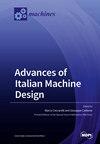Exponential Local Fisher Discriminant Analysis with Sparse Variables Selection: A Novel Fault Diagnosis Scheme for Industry Application
IF 2.1
3区 工程技术
Q3 ENGINEERING, ELECTRICAL & ELECTRONIC
引用次数: 0
Abstract
Local Fisher discriminant analysis (LFDA) has been widely applied to dimensionality reduction and fault classification fields. However, it often suffers from small sample size (SSS) problem and incorporates all process variables without emphasizing the key faulty ones, thus leading to degraded fault diagnosis performance and poor model interpretability. To this end, this paper develops the sparse variables selection based exponential local Fisher discriminant analysis (SELFDA) model, which can overcome the two limitations of basic LFDA concurrently. First, the responsible faulty variables are identified automatically through the least absolute shrinkage and selection operator, and the current optimization problem are subsequently recast as an iterative convex optimization problem and solved by the minimization-maximization method. After that, the matrix exponential strategy is implemented on LFDA, it can essentially overcome the SSS problem by ensuring that the within-class scatter matrix is always full-rank, thus more practical in real industrial practices, and the margin between different categories is enlarged due to the distance diffusion mapping, which is benefit for the enhancement of classification accuracy. Finally, the Tennessee Eastman process and a real-world diesel working process are employed to validate the proposed SELFDA method, experimental results prove that the SELFDA framework is more excellent than the other approaches.指数局部费雪判别分析与稀疏变量选择:面向工业应用的新型故障诊断方案
局部Fisher判别分析(LFDA)已广泛应用于降维和故障分类等领域。然而,该方法往往存在小样本问题,将所有过程变量都纳入其中而不强调关键故障变量,从而导致故障诊断性能下降和模型可解释性差。为此,本文提出了基于稀疏变量选择的指数局部Fisher判别分析(SELFDA)模型,该模型同时克服了基本LFDA的两个局限性。首先,通过最小绝对收缩算子和选择算子自动识别责任故障变量,然后将当前优化问题转化为迭代凸优化问题,并采用最小化-最大化方法求解。之后,将矩阵指数策略应用于LFDA,通过保证类内散点矩阵始终为满秩,从本质上克服了SSS问题,在实际工业实践中更加实用,并且由于距离扩散映射,不同类别之间的余量增大,有利于分类精度的提高。最后,采用田纳西伊士曼过程和实际柴油工作过程对所提出的SELFDA方法进行了验证,实验结果证明SELFDA框架比其他方法更优秀。
本文章由计算机程序翻译,如有差异,请以英文原文为准。
求助全文
约1分钟内获得全文
求助全文
来源期刊

Machines
Multiple-
CiteScore
3.00
自引率
26.90%
发文量
1012
审稿时长
11 weeks
期刊介绍:
Machines (ISSN 2075-1702) is an international, peer-reviewed journal on machinery and engineering. It publishes research articles, reviews, short communications and letters. Our aim is to encourage scientists to publish their experimental and theoretical results in as much detail as possible. There is no restriction on the length of the papers. Full experimental and/or methodical details must be provided. There are, in addition, unique features of this journal: *manuscripts regarding research proposals and research ideas will be particularly welcomed *electronic files or software regarding the full details of the calculation and experimental procedure - if unable to be published in a normal way - can be deposited as supplementary material Subject Areas: applications of automation, systems and control engineering, electronic engineering, mechanical engineering, computer engineering, mechatronics, robotics, industrial design, human-machine-interfaces, mechanical systems, machines and related components, machine vision, history of technology and industrial revolution, turbo machinery, machine diagnostics and prognostics (condition monitoring), machine design.
 求助内容:
求助内容: 应助结果提醒方式:
应助结果提醒方式:


